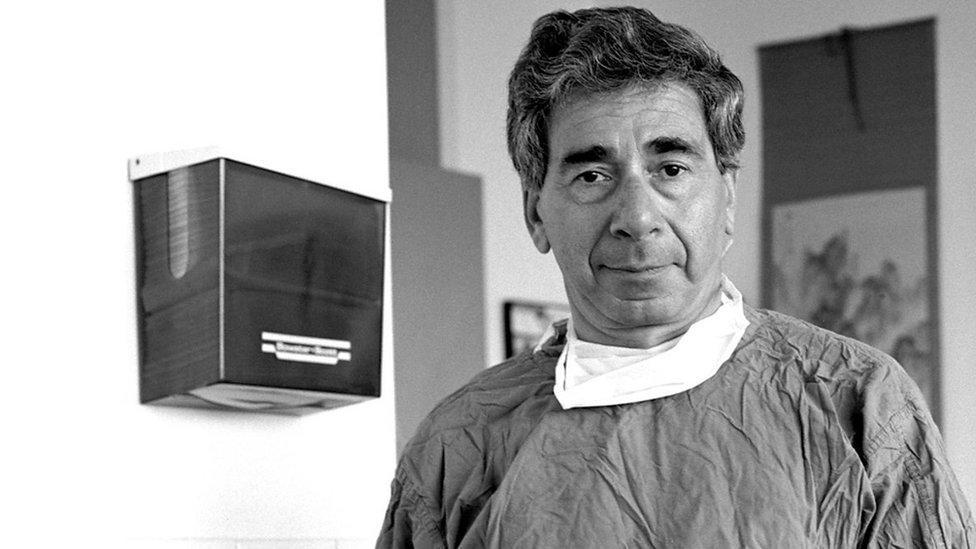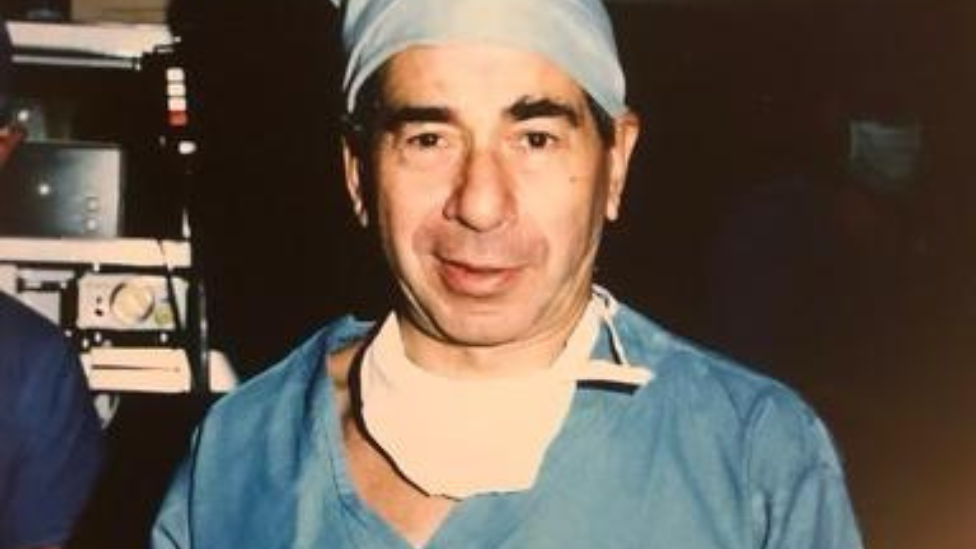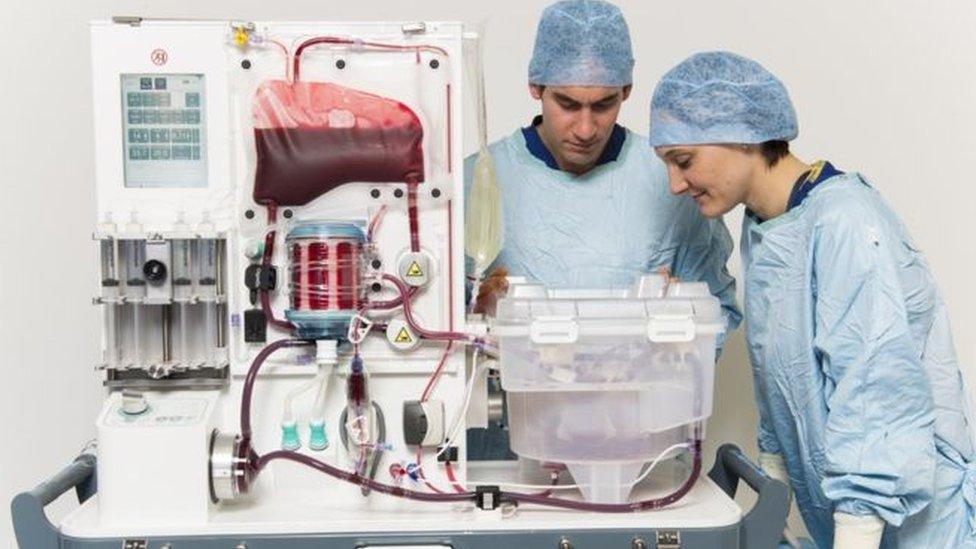Sir Roy Calne: Pioneering Cambridge surgeon dies aged 93
- Published

Sir Roy Calne's son Russell said he was "an incredible person to have as a father"
Pioneering British surgeon Prof Sir Roy Calne, who undertook the UK's first successful liver transplant operation, has died at the age of 93.
Sir Roy led the operation at Addenbrooke's Hospital in Cambridge in 1968, a year after the US's first successful liver transplant.
The world-leading surgeon, who died of heart failure overnight on Saturday, received a Pride of Britain Award for his life's work.
His son Russell said he was "an incredible person to have as a father".
"He was an amazing character, a slight eccentric and a wonderful father to six children," Mr Calne said.
"We were all very, very proud of him for everything he has achieved and done, and we've been to some amazing places due to his accolades."
Born in Richmond, Surrey, Sir Roy was educated at Lancing College before having his medical training at Guy's Hospital in Southwark, London.
He was the first to use drugs to help stop the rejection of donated organs and this led to a major expansion of organ grafting worldwide.

Sir Roy received a Pride of Britain Award for Lifetime Achievement in 2014
Several of the immunosuppressive drugs used today to help curb rejection, which can be a fatal complication, were even introduced by Sir Roy.
Cyclosporine, which helped turn transplantation into an established clinical practice, was one such drug.
The world-class surgeon went on to start a kidney transplant programme in Cambridge in 1965, before he performed the first successful liver transplant in the UK three years later.
The patient, a 46-year-old woman with liver cancer, died two months later of an infection.

Russell Calne said his father "used to have nightmares about patients that had died"
Sir Roy's work saw him elected a Fellow of the Royal Society in 1974 and knighted in 1986.
In December 1986, while a surgeon at Addenbrooke's, he undertook the world's first liver, heart and lung transplant with John Wallwork, external at Papworth Hospital in Papworth Everard, which has since moved to Cambridge.
He collected numerous accolades including the Pride of Britain Award for Lifetime Achievement in 2014, external.

Sir Roy's work saw him receive a knighthood in 1986
"He was very driven by his work and he was also very widely academic as well," Mr Calne said.
"He used to have nightmares about patients that had died. It wasn't all roses for him; it was stressful, but he never showed that."
Sir Roy loved sport and would squeeze in a game of squash around lengthy operations if he could, his son added.
He continued to ski up to the age of 75 and played tennis until he was 80.
"He was very much a down to earth person who looked after the little people; that was part of his forte," Mr Calne said.
"Though a genius he never portrayed it to us; we were only ever shown love by him."
'Amazing legacy'
Mike More, chairman of Cambridge University Hospitals NHS Foundation Trust, said Sir Roy inspired future generations of clinicians.
"Sir Roy leaves behind a truly amazing legacy and many of our staff will remember him with fondness for his vision and genuine kindness," he said.
"We will all miss him very much."
Dame Esther Rantzen, who presented the BBC television series That's Life!, said Sir Roy was an "incredibly courageous" surgeon.
She said he got in touch with her to help save a two-year-old boy who had weeks to live unless he found a donor.
"He was not only a brilliantly skilled surgeon, but he had immense courage," said Dame Esther.

Follow East of England news on Facebook, external, Instagram, external and X, external. Got a story? Email eastofenglandnews@bbc.co.uk , externalor WhatsApp 0800 169 1830
- Published2 May 2018
